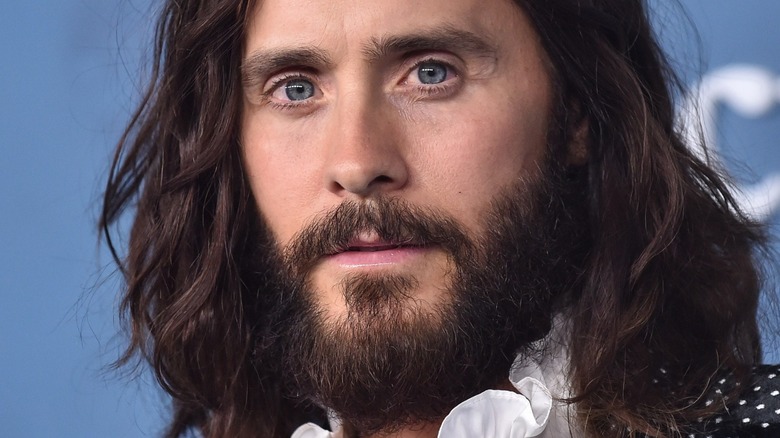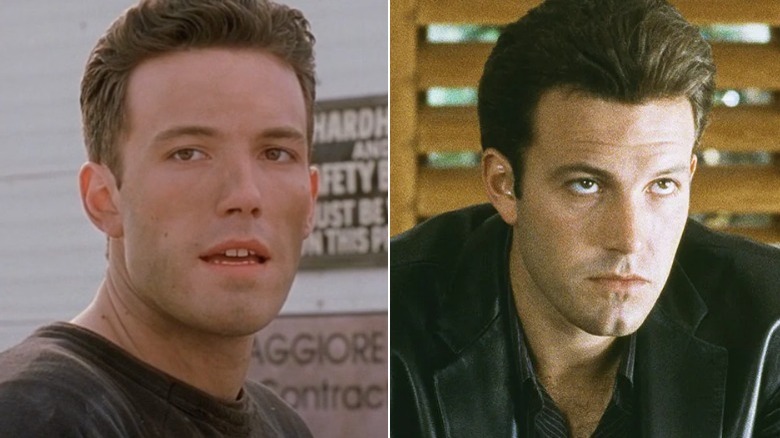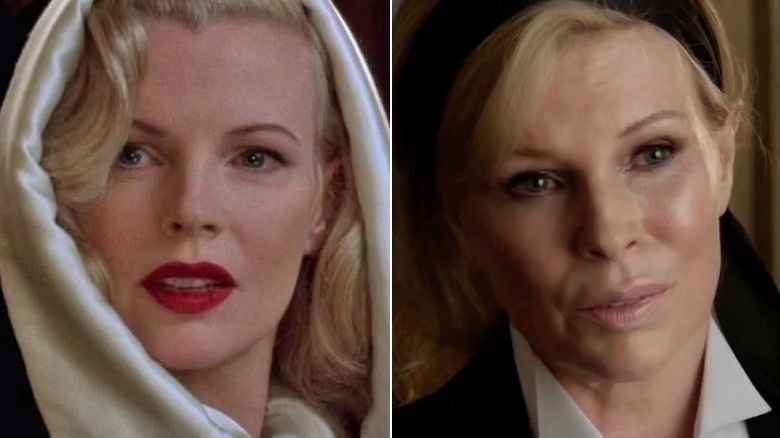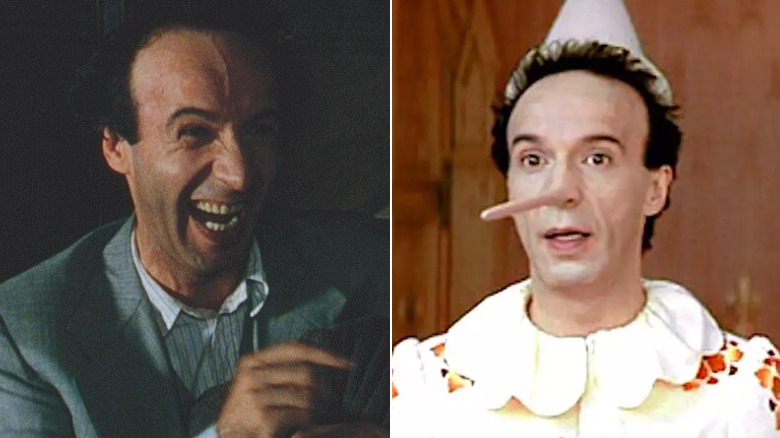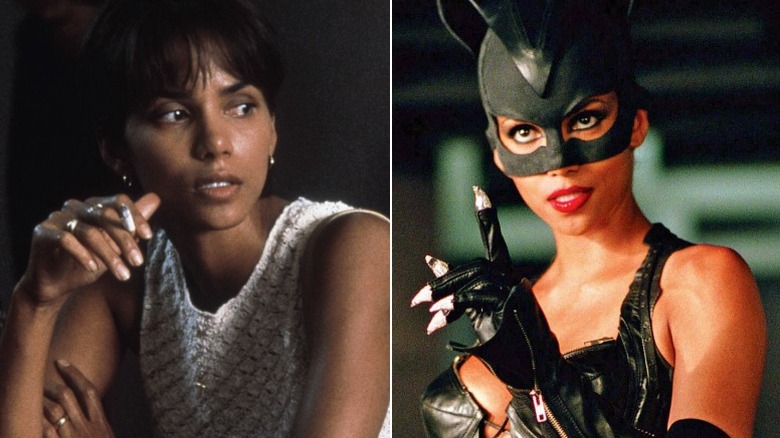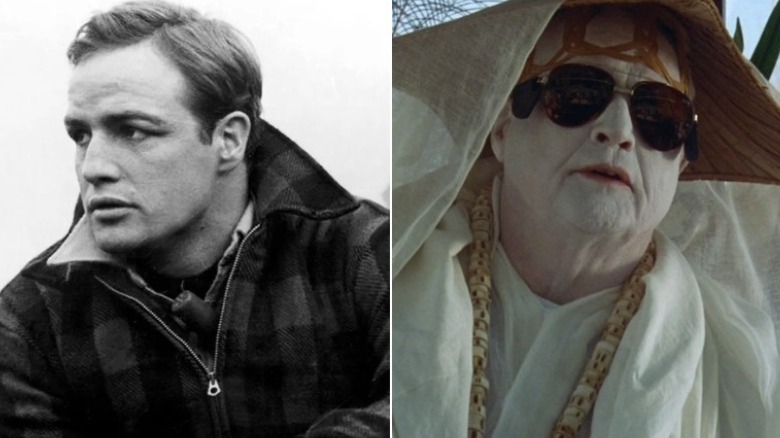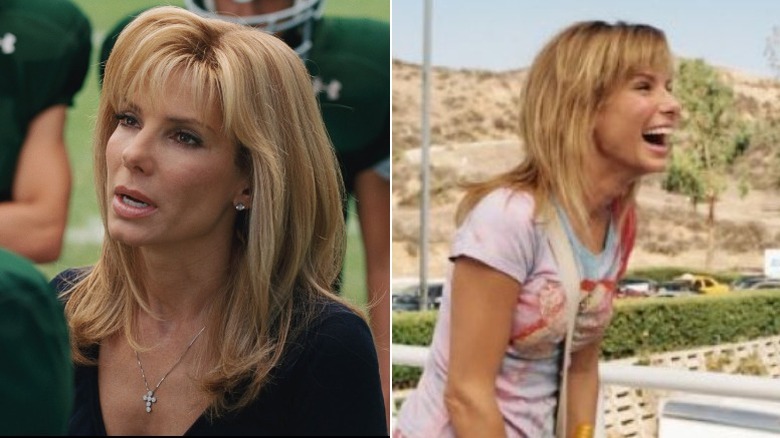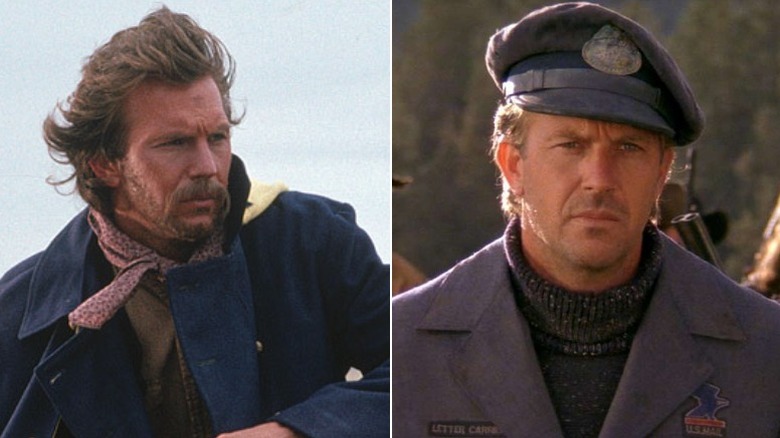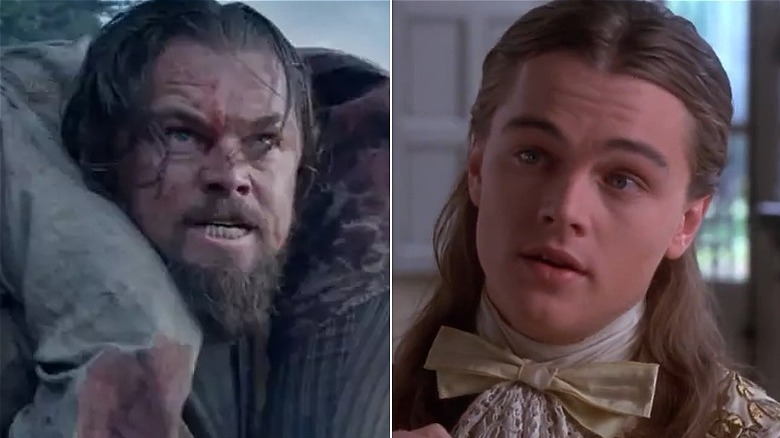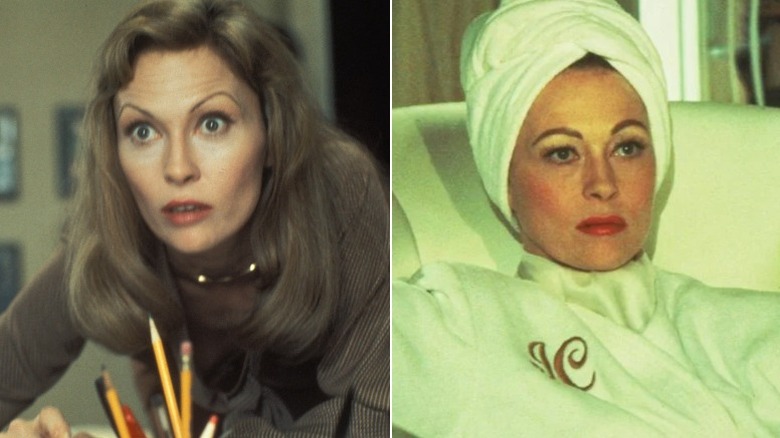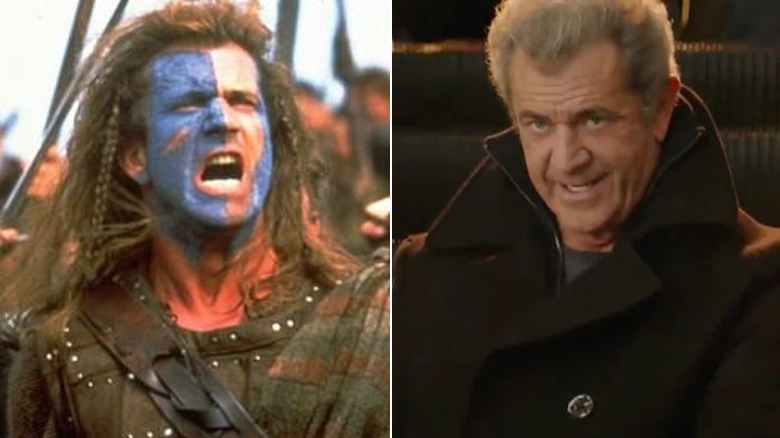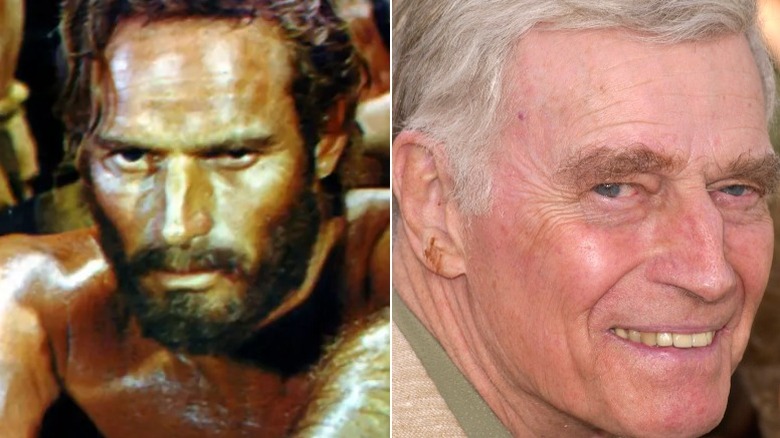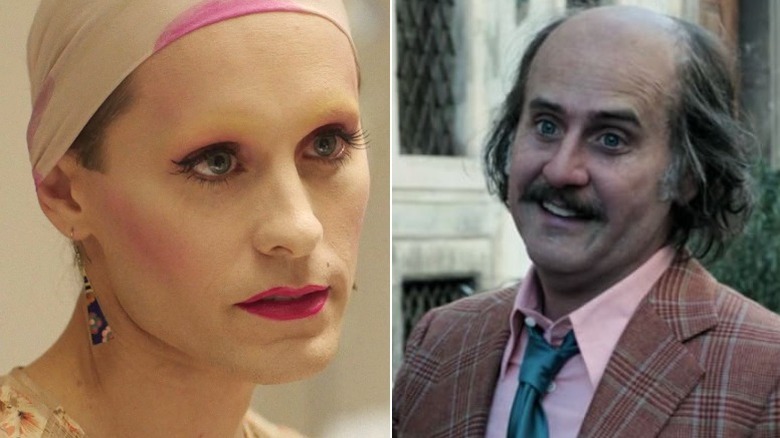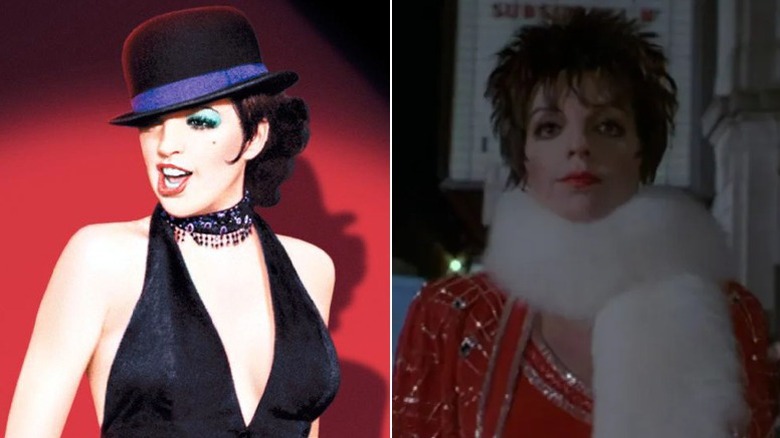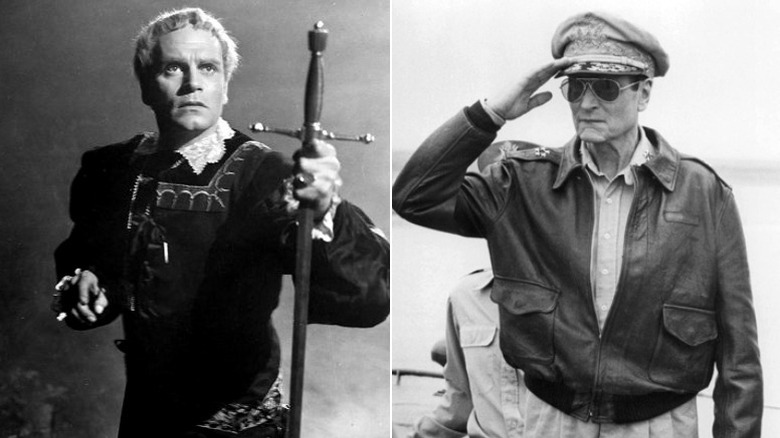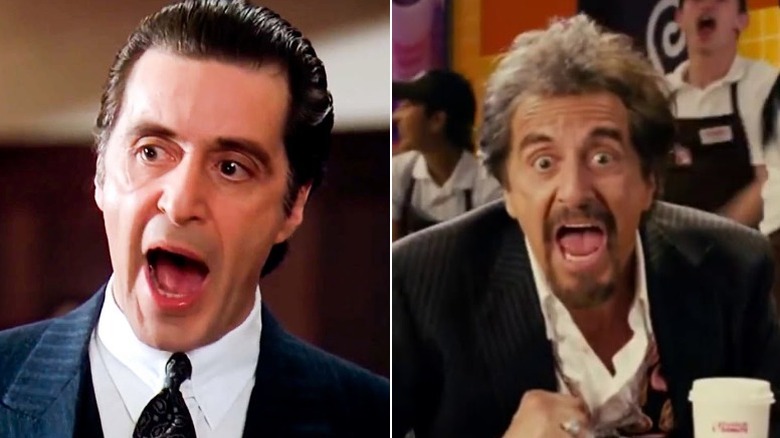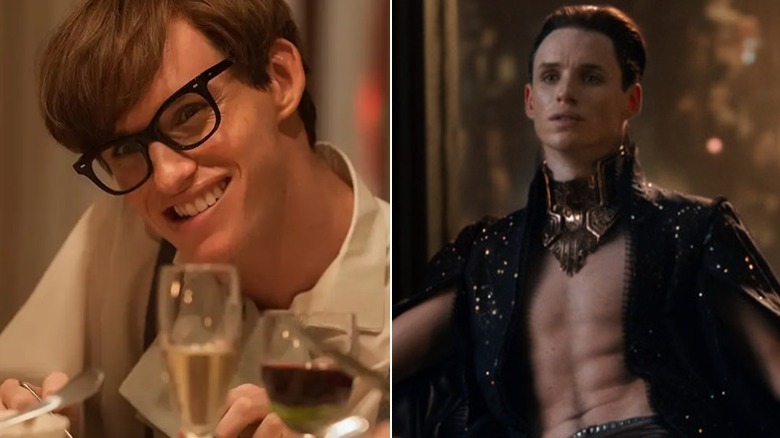Actors Who Actually Have Both Oscars And Razzies
Just like every other working professional, actors like to be recognized and rewarded for a job well done. Though there are several metrics by which performers can measure their success (fame, million-dollar contracts, record-breaking box office returns, critical acclaim, etc.), the gold standard is still the little gold man handed out by the Academy of Motion Picture Arts and Sciences every year. But each year, only four film stars actually get to walk up to the podium and claim their prize, making the ranks of Oscar winners an incredibly exclusive club within an already difficult-to-break-into industry.
But working in Hollywood puts even the most accomplished actors through their share of ups and downs. One minute, a celebrity can be thanking the Academy, their agent, and their significant other. The next minute, they might discover their latest movie tanked with critics and audiences, and they've been given the wholly unsought-after distinction of having been singled out for a bad performance. The Golden Raspberries (or Razzies) have been celebrating the worst in film since 1981. You might think the awards for the best and worst acting would be presented to two largely separate pools of movie stars, but there's actually a surprising amount of overlap. For these actors — many of whom are considered Hollywood royalty — the Academy made their dreams come true, while the Razzies kept them humble.
Ben Affleck
1997's "Good Will Hunting" wasn't Ben Affleck's first movie, but it was the one that cemented his status as an internationally-known talent in front of and behind the camera. He won the Oscar for best original screenplay along with Matt Damon at the tender age of 25, and he went on to win best picture for 2012's "Argo." It was Damon and not Affleck who was nominated for his performance in "Good Will Hunting" — in fact, Affleck has never been nominated for his acting, despite turning in praiseworthy performances in films like "Shakespeare in Love," "Gone Girl," "The Way Back," "The Last Duel," and "The Tender Bar." Still, Affleck clearly has the respect of his peers, especially as a filmmaker.
But respect doesn't mean Affleck has a perfect record. "Gigli" — his collaboration with then-fiance (and now wife) Jennifer Lopez — became a punchline in 2003 at the apex of the pair's tabloid superstardom. Though the crime comedy about a hitman and his hot babysitter starred two of the most famous people in the world, it bombed hard at the box office and critics couldn't contain their ire. Affleck won the Razzie for his performance, and he and Lopez (who called off their first planned wedding shortly thereafter) won for worst screen couple.
Kim Basinger
Kim Basinger was, for a time, one of Hollywood's go-to icy blondes in films like "9 1/2 Weeks," "Batman," and "Cool World." It was exactly that stereotype that she deconstructed with her performance as Lynn Bracken in 1997's "L.A. Confidential," for which she won a well-deserved Academy Award for best supporting actress. Lynn is a high-end call girl in 1950s Los Angeles who has — somewhat against her will — gone under the knife and dyed her hair in order to resemble film star Veronica Lake. She begins an affair with a cop (Russell Crowe) who sees himself as a defender of battered women, but who has trouble controlling his own temper, even more so when it comes to Lynn's line of work.
After Basinger's Oscar win, the steady stream of roles available to this talented bombshell began to dry up. She continued to work, albeit in parts and movies that didn't quite befit her stature. By 2017, she was playing second fiddle to Dakota Johnson in "Fifty Shades Darker," the second installment of the "Fifty Shades of Grey" trilogy. Basinger was cast as Elena Lincoln, a powerful businesswoman who grooms a teenage Christian Grey and turns him on to his signature bedroom behavior. Inexplicably, they're still on good terms years later, when the sequel takes place. The role was beneath her to begin with, but Basinger didn't do herself any favors with her performance, which earned her a Razzie and reviews that compared her to a waxwork animatronic.
Roberto Benigni
Academy Awards often go to actors who are known quantities in Hollywood and have a long history of popular films under their belts. It took legends like Al Pacino and Christopher Plummer decades to win, and Ian McKellen and Samuel L. Jackson still haven't heard their name called. But in 1999, an Italian actor and filmmaker named Roberto Benigni nabbed the best actor statue over fellow nominees McKellen, Tom Hanks, Edward Norton, and Nick Nolte for a romantic family comedy about the Holocaust called "Life is Beautiful."
In the wake of the commercial and awards success of "Life Is Beautiful," Benigni experienced a bit of critical backlash. The movie — much like more recent Oscar winner "Jojo Rabbit" — isn't for everybody, with its high concept narrative and mannered performance style. But if "Life is Beautiful" is to your taste, Benigni is undeniably the film's heart and soul. Only five years later, he tried to apply the same sense of dark whimsy to the classic story of "Pinocchio." The Italian version missed the mark, but the English dub (which was marketed with McDonald's Happy Meals following his previous Oscar wins) scored zero percent on Rotten Tomatoes. "Pinocchio" was nominated for six Razzies in total, and Benigni was named worst actor for his portrayal of the living little-boy puppet (at age 50). Shockingly, he got to make another "Pinocchio" in 2019; this time, he played Geppetto.
Halle Berry
Halle Berry began her career as a pageant queen and model. That kind of otherworldly beauty can be a double-edged sword. It surely helped Berry break into the entertainment industry, but it also meant she had to fight harder to be considered a serious actress. Berry reached the pinnacle of her dramatic career with her 2002 Oscar win for best actress in "Monster's Ball," making her the first Black woman ever to win in that category. She plays Leticia, a woman whose husband is on death row and is struggling to raise her son alone. Overwhelmed and depressed, Leticia begins a sordid and alcohol-fueled affair with a prison guard, played by Billy Bob Thornton. Berry's work in "Monster's Ball" is tortured, raw, and unselfconscious compared to how glamourous she'd been in other projects.
The filmmakers behind 2004's "Catwoman" were likely trying to capitalize on Berry's Oscar win when they cast her as the sleek and ferocious titular anti-hero. The embarrassing final product never really came together and failed to recoup its big budget. "Catwoman" led the pack of bad movies that year with seven Razzie nominations and four wins. Though critics were generally kinder to Berry than they were to the movie itself, she still took home the Golden Raspberry for worst actress ... literally. Always a good sport, Berry showed up in person to claim her trophy and even gave a good-natured speech.
Marlon Brando
Marlon Brando was a mid-century icon of the silver screen and the man who brought method acting into the mainstream. For his efforts, he was rewarded with two Oscars. The first came in the heyday of his stardom; Brando won best actor for 1954's "On the Waterfront," in which he plays Terry Malloy, a once-promising boxer turned dockworker who gets involved in the criminal dealings of a corrupt and power-hungry union boss. 18 years later, after a career slump, Brando returned to form with the role for which he's best remembered: Don Vito Corleone. The actor received another Academy Award for his nuanced and oft-imitated performance as the patriarch of the crime family in Francis Ford Coppola's masterpiece, "The Godfather."
Brando shines in a string of hits from his early career and his 1970s resurgence such as "A Streetcar Named Desire," "Julius Caesar," "Guys and Dolls," and "Apocalypse Now." But his filmography is more checkered than you might think. A low point came when he won the worst supporting actor Razzie for the 1996 remake of "The Island of Dr. Moreau." Brando plays the titular character in the film that was resoundingly rejected by audiences and critics. The project was a disaster from the start, with Brando experiencing a number of personal setbacks, including the death of his daughter, and he was so checked out that he ended up having his lines fed to him through an earpiece.
Sandra Bullock
Sandra Bullock is one of the most popular and versatile actresses in the industry. She's beautiful but approachable. She projects confidence as well as humility. She can effortlessly transition from drama to comedy to action. In fact, Sandra Bullock has such range that she managed to win the awards for best and worst actress in the same year.
In 2009, Bullock starred in "The Blind Side," and "All About Steve." The former is the schmaltzy, based-on-a-true-story sports drama in which Bullock plays Leigh Anne Tuohy, the woman who adopts Michael Oher, a foster kid who goes on to play professional football. Though critics didn't love the movie (even those who favorably reviewed it called it emotionally manipulative), audiences and the Academy disagreed. "The Blind Side" was nominated for best picture, and Bullock won best actress.
However, the day before the Oscars, Bullock attended the 2010 Razzies where she accepted her award for worst actress. As a gag, she gave out DVD copies of "All About Steve," the comedy in which she stars with Bradley Cooper. Bullock plays Mary, a woman whose entire personality seems like a bunch of twee quirks thrown into a blender. She's a crossword puzzle writer with a pet hamster and shiny red boots who becomes obsessed with a man she meets on a blind date and decides to stalk him after he tries to let her down easy.
Kevin Costner
After years as a leading man, Kevin Costner decided to try directing. His debut effort, 1990's "Dances with Wolves," went over extremely well. It impressed critics, made hundreds of millions of dollars at the box office, revitalized the Western as a genre, and earned a whopping 12 Academy Award nominations including three for Costner as producer, director, and star. He won best picture and best director, but lost best actor to Jeremy Irons for "Reversal of Fortune." Costner's epic about a Civil War soldier living among American Indians legitimized him as an artist behind the camera and earned him a blank check to make his next movie.
That film was 1997's "The Postman." From its title and promotional images, "The Postman" didn't seem to be too far removed from "Dances with Wolves." It's a sweeping neo-Western directed by and starring Costner, but this time, the drama takes place in an alternate, post-apocalyptic 2013 after a plague has wiped out much of the human population and, with it, modern technology. Costner plays the titular Postman, who's not really a mail deliverer but a migrant who stumbled upon an old uniform and is endeavoring to restore civilization through the re-establishment of a postal service. Critics and audiences returned it to sender, and it went five for five at that year's Golden Raspberry Awards.
Leonardo DiCaprio
Leonardo DiCaprio was a child star who easily transitioned to prestige adult actor thanks to his pretty face, formidable talent, and carefully chosen projects. He's starred in more than his fair share of Oscar-nominated and Oscar-winning movies – 10, to be exact. An auteur favorite, he's the leading man in James Cameron's "Titanic," Martin Scorsese's "The Departed," Christopher Nolan's "Inception," and Quentin Tarantino's "Once Upon a Time in Hollywood." Unfortunately for this A-lister, the performances that anchor these much-celebrated movies have been recognized far less often than the pictures themselves. Leo finally won a coveted statue for "The Revenant," in which he portrays Hugh Glass, a frontiersman who's brutally mauled by a bear.
His Razzie came nearly 20 years earlier in his career. In 1998's "The Man in the Iron Mask," DiCaprio plays two roles: France's King Louis XIV and his secret identical twin brother, Philippe (or the Man in the Iron Mask). This Three Musketeers-adjacent movie is loosely based on a real prisoner and the writings of Alexander Dumas, and it hit theaters around the same time as "Titanic." Though the film received mixed reviews, audiences still bought tickets in part because of the Leo fever that was in full swing. Razzie voters weren't so enamored. Playing both the hero and the villain sounds like fodder for awards' attention, but the only trophy bestowed upon him was the Golden Raspberry for the worst on-screen couple.
Faye Dunaway
Faye Dunaway began her career on Broadway in the 1960s, starring in classics like "A Man for All Seasons" and "A Streetcar Named Desire." By the end of the decade, she was playing one half of the outlaw duo in "Bonnie and Clyde" alongside Warren Beatty. Dunaway received her first Academy Award nomination for that role, and her second for "Chinatown," in which she starred opposite Jack Nicholson. She was finally presented with the Oscar for 1976's "Network," a dark but expertly acted dramedy about a television channel's lagging ratings and a messiah-like figure who resurrects them. Dunaway is Diana Christensen, the fictitious network's head of programming who has few if any personal or professional scruples.
Just five years later, another film of Dunaway's created some controversy of its own. She embodied another famed actress in "Mommie Dearest," the 1981 biopic of Joan Crawford. The movie focuses on Crawford's adoption and subsequent abuse of her daughter Christina. It's infamous for — among other things — the "no wire hangers" scene. Dunaway's Crawford is so over-the-top, Variety said she, "does not chew scenery," but "starts neatly at the corner of the set in every scene and swallows it whole, co-stars and all." Paramount intended "Mommie Dearest" to be a drama, but weeks after its release, it was clearly viewed as camp. The studio tried out a new slogan ("Meet the biggest MOTHER of them all!"), but it was too late. The film won five Razzies, including Dunaway's for worst actress.
Mel Gibson
Like Costner and Affleck, Mel Gibson's ambitions also extended beyond the role of a movie star. To win his pair of Oscars, Gibson followed a similar path to Costner, directing and starring in a rousing historical epic. 1995's "Braveheart" was named best picture and Gibson won best director in something of a surprise that year over Ron Howard for "Apollo 13," who had been seen as the frontrunner. "Braveheart" received praise for its battle scenes but was dinged for its historical accuracy, and audiences were split over its use of graphic violence.
After a bit of an involuntary sabbatical due to his frequently racist and anti-Semitic remarks, Gibson began to appear in movies again semi-regularly in the 2010s. However, he never quite regained his Hollywood heavyweight status. In 2017's "Daddy's Home 2," he plays Dusty's (Mark Wahlberg) father, a fighter pilot and astronaut whose regressive masculinity and neglect made Dusty into the problematic man he was in the first "Daddy's Home." In practice, Kurt comes off as stupid, petty, womanizing, and not remotely as cool as he thinks he is. Casting Gibson as this sort of outdated archetype — even as some sort of stunt — comes across as more cringe-worthy than self-aware. Unlike his Oscars for "Braveheart," his Razzie for worst supporting actor in "Daddy's Home 2" wasn't a surprise.
Charlton Heston
The reputations of those who are fortunate enough to have long careers in the entertainment industry can change dramatically over time. In Charlton Heston's 84 years, he went from being a vocal supporter of the civil rights movement to a conservative NRA activist, at the same time going from being a chiseled, stoic leading man in action epics to someone who mostly did ironic cameos and voiceover work in kids' movies.
Heston starred in monumental films such as "The Greatest Show on Earth," "The Ten Commandments," and "Planet of the Apes." He won his Oscar for playing the title character in 1959's "Ben-Hur," the big-budget religious parable about the strife between the Romans and the Jews that leads up to Jesus Christ's crucifixion, although his performance was somewhat overshadowed by the film's breathtaking and then-cutting edge chariot race.
Nearly half a century later, Heston won worst supporting actor for his appearances in three separate movies at the 2002 Golden Raspberries. He stars as an English Mastiff in "Cats & Dogs," a heavily-made up Zaius in the reboot of "Planet of the Apes," and a parody of his elderly, gun-toting persona in the horribly reviewed ensemble romantic comedy, "Town and Country."
Jared Leto
Jared Leto became a household name playing Angela Chase's swoon-worthy crush, Jordan Catalano, on the canceled-too-soon teen drama, "My So-Called Life." He got critics' attention for his work in movies like "Prefontaine," "Fight Club," and "Requiem for a Dream," and Academy love when he won best supporting actor for "Dallas Buyers Club." Leto plays Rayon, an HIV-positive trans woman who struggles with addiction. While his co-star Matthew McConaughy's Ron Woodroof was a real person, Rayon is a composite character. Leto's performance was nearly universally praised, although many felt a trans actor should've been given the opportunity to play the part.
In the years since, Leto's taken on bigger and bolder roles. This trend culminated with 2021's "House of Gucci," in which he portrays black sheep Paolo Gucci from underneath pounds of prosthetics and makeup. Such flamboyant choices come with great risk. His efforts were so divisive that he seemed to have as much a shot at being nominated for another Oscar as he did a Razzie. The Academy passed him by, but the Golden Raspberries gave him his first worst supporting actor award.
Liza Minnelli
Younger audiences probably know Liza Minnelli from her hilarious guest appearances on "Arrested Development," where she plays Lucille 2, the love interest of Buster and rival of his mother, Lucille. Minnelli — the daughter of Judy Garland — managed to carve out a career for herself in music, theatre, movies, and TV, outside of her mother's shadow. She'll be remembered for her Academy Award-winning role as Sally Bowles in "Cabaret." Sally is blonde and English in the stage version, but Liza made the aspiring nightclub singer a character all her own in Bob Fosse's masterpiece about pre-war Germany.
After 1981's "Arthur," Liza had a harder time securing the kinds of juicy, triple-threat roles in which she so easily shined. In 1988, she appeared in two poorly reviewed films that, combined, earned her a Razzie award for worst actress. In "Arthur 2: On the Rocks," she reprises her role as Linda, Arthur's now-wife who wants to adopt a child with her supposedly charming alcoholic husband. But it was probably her role as a hooker with a heart of gold in the Burt Reynolds-led "Rent-a-Cop" that nabbed her the Golden Raspberry. The film received abysmal reviews from critics and the few members of the public who saw it; it made a mere $300,000 dollars at the box office, which didn't come close to recouping its $16 million budget.
Laurence Olivier
Sir Laurence Olivier's name is synonymous with the craft of acting. Even those who are only passingly familiar with the man could probably guess he won an Oscar, though they might not be able to guess for what film. Olivier starred in adaptations of the works of William Shakespeare and Tennessee Williams, not to mention "Wuthering Heights" and "Spartacus." The master thespian, who performed on the stage and the small screen throughout his life with just as much gusto, was nominated for 11 and won a total of three Academy Awards, including a competitive statuette for best actor in 1948's "Hamlet."
Like all famous actors, Olivier had to carefully ponder what projects to join. Shockingly, this luminary of the cinema chose unwisely twice in a row. He received his first Razzie for worst supporting actor, thanks to an ill-advised remake of "The Jazz Singer" that also starred Neil Diamond. Roger Ebert said the movie, "has so many things wrong with it that a review threatens to become a list." War movies often do well at the box office and on the awards circuit. They come with a built-in gravitas, thanks to their subject matter and high stakes. But Olivier earned his second consecutive Razzie for "Inchon!," a Korean War epic that has a zero percent Rotten Tomatoes score and is sometimes cited as the worst war movie ever made.
Al Pacino
Let's be honest: Al Pacino could've justifiably won an Oscar for any number of his memorable performances. He's been nominated nine times, for — among other noteworthy films — "The Godfather," "The Godfather: Part II," "Dog Day Afternoon," and "Glengarry Glen Ross." Pacino's role as Frank, a blind, depressed, yet incredibly charismatic former Army Colonel, in "Scent of a Woman" isn't as essential to his place in film history as is, say, Michael Corleone, but it did give us "Hoo-ah" as well as a killer tango scene. It also got Pacino to the Oscars stage where he collected his award for best actor 20 years after his first nomination.
Pacino has a knack for playing likable bad guys, crooked good guys, and big personalities (including the Devil himself). He's dipped a toe into self-parody, especially later in his career, with films like "Once Upon a Time in Hollywood" and "House of Gucci." He has, after all, a very specific persona. However, he took things to a level so meta that the internet could barely handle it with 2011's "Jack and Jill." The critically reviled Adam Sandler comedy stars the SNL alum as the titular Jack and Jill, and Pacino as the man who is inexplicably smitten with Jill. "Jack and Jill" became the first movie ever to sweep the Razzies, which meant Pacino was named worst supporting actor for his performance.
Eddie Redmayne
After getting his start on the London stage and filling small roles in period pieces like "Elizabeth: The Golden Age" and "The Other Boleyn Girl," this lithe Brit quickly became a leading man and a critical darling. He won an Academy Award for his portrayal of Stephen Hawking in 2014's "The Theory of Everything." In becoming Hawking, Redmayne had to avoid making it seem as though he was poking fun at the late genius's disabilities. By most critics' and voters' assessments, he succeeded.
Just one year later, Redmayne attempted something completely different. In the Wachowskis' 2015 trippy space adventure, "Jupiter Ascending," he plays the villain, Balem Abrasax. Balem is an alien rich kid capitalist who pillages Jupiter for profit and tries to keep the cosmic plebes (especially one toilet cleaner named Jupiter) from ascending the social ladder. It's sometimes said that acting is about making choices, and boy does Redmayne make choices in portraying Balem. Chief among them is the voice he affects — as he explained to GQ, his character, "had his larynx ripped out by this wolf man." Unfortunately, winning the Razzie for worst supporting ractor that year convinced Redmayne that his performance in "Jupiter Ascending" was "pretty bad by all accounts." However, fans of his work (if not the movie) have reclaimed his bold performance as a brilliant stroke of artistic expression.
